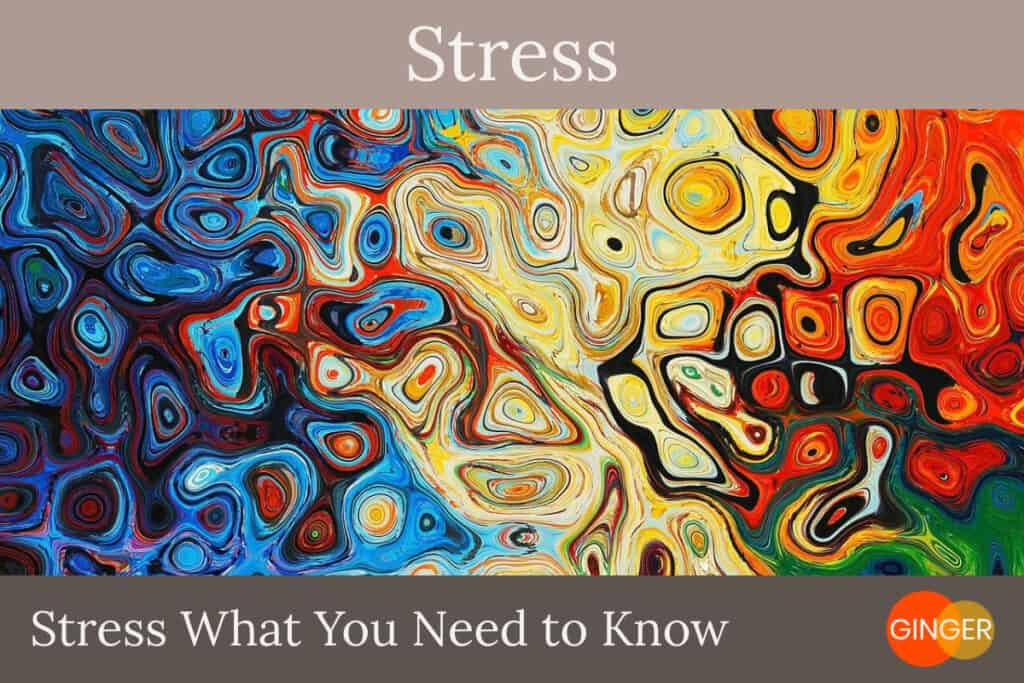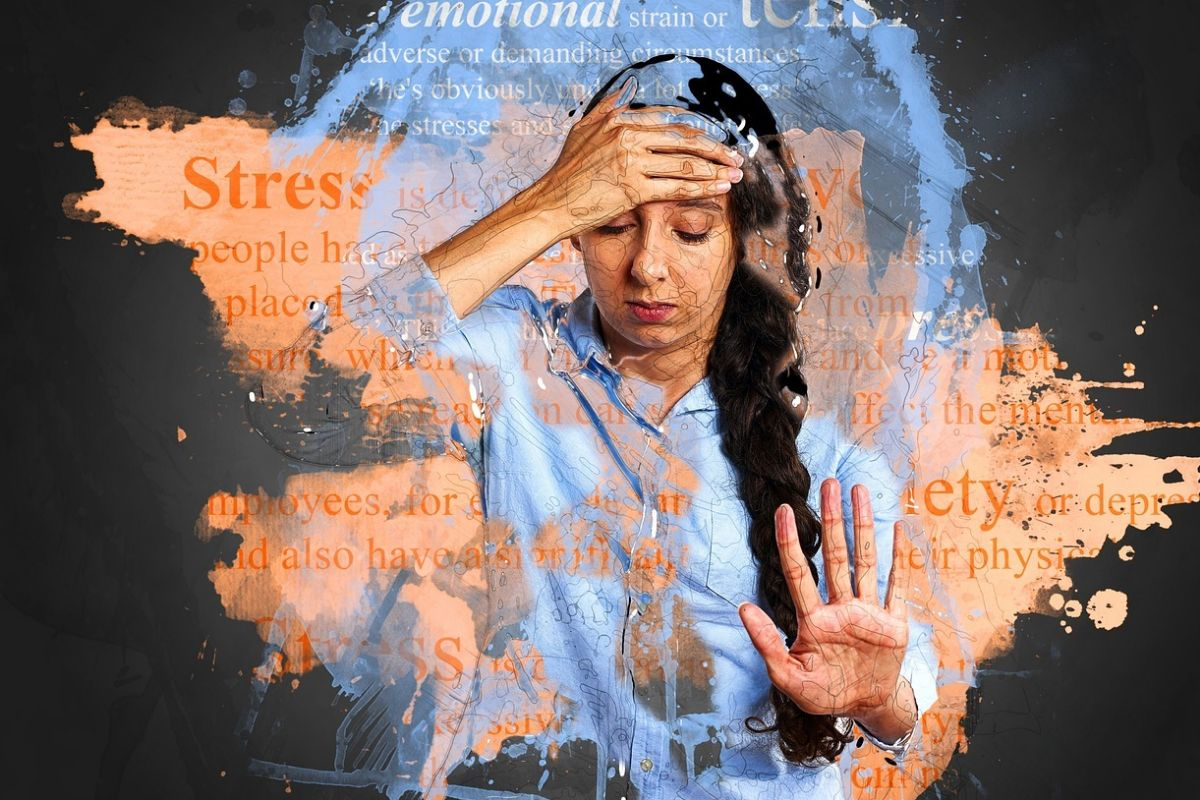Stress: What You Need To Know
If you’re a human being on Planet Earth, you will face stress. It’s inevitable and cannot be avoided. That’s just the way life is set up. The goal here is NOT to avoid stress altogether. That’s impossible.
To survive, you must lower your stress levels and adjust your sails to accommodate the prevailing winds. Being stubborn and complaining about the hand life dealt you will lead you to a spiral of stress, disappointment, and despair.
In this article, you’re going to learn the basics of stress. It will help you to understand what it’s all about and how you can cope with it—knowing what to do when feeling overwhelmed is the key to managing stress.

Different types of stress
The medical industry categorizes stress into acute, episodic, and chronic. Acute stress is the most common type of stress and is usually short-term. It can be caused by a sudden event or situation that requires an immediate response, such as a job interview, public speaking engagement, or an important exam. It’s often a result of the change.
Episodic stress is a sequence of acute stress events. For example, if you lose your job, your wife leaves you, and you discover that you have heart disease, one problem after another. You barely have time to catch your breath before the next shock hits you.
Chronic stress is the result of living with stress for a long time. For example, this financial stress is chronic if you were born into a low-income family or struggled with money for years. Likewise, it’s established if you’ve been dealing with grief from losing a loved one for years.
The same applies to coping with health problems or having a loveless marriage. But, unfortunately, the stress doesn’t seem to end. The key to overcoming these three forms of stress is identifying the cause and planning how to overcome the problems. If you can’t overcome it, you must figure out how to let it go. For example, you could go for therapy or adopt measures to alleviate stress.
Stress Raises the risk of certain diseases.
Speaking of diseases, your risk of getting many diseases increases if your stress levels are unchecked. These are some of the common ailments that have been linked to stress:
- Depression
- High cholesterol levels
- Anxiety disorders
- High blood pressure
- Osteoporosis
- Heart disease
- Cancer
- Insomnia
- Eating disorders
- Irritable bowel syndrome

It can be managed
The good news is that stress can be managed. Yoga, meditation, walks by the beach, watching comedies, hobbies, etc., are all ways to let off steam and control yourself. If you can find a way to take youIt’snd off the problem and relax, you’ll be helping yourself to de-stress. It’s not rocket science, but you must make time for it.
Many people make doesn’ttaYou’ll expect the stress to go away on its own. In most cases, it doesn’t. You’ll need to proactively take breaks to recharge and bring calmness and serenity into your life. “Everybody wants a happy life and a peaceful mind, but we must produce peace through practice.” Dalai Lama XIV
Part of life
Stress is an unavoidable part of life and can significantly impact our physical and mental health. Therefore, it’s essential to understand the different types of stress, how they affect us, and what we can do to manage them. In the second part of this article, we’ll explore the sources of chronic stress and how it affects our bodies.
Discover Top Causes of Stress
In this section, we’ll look at the ten causes of everyday stress causes. While this article will not go into details about managing stress, knowing the reasons will help you be more aware and vigilant of what could contribute to your stress.
1. Work pressures and deadlines
This is probably the leading cause of acute stress for both men and women. The pressures at work to perform and please your superiors are never-ending. With the current climate of job uncertainty, one always needs to be on their toes to avoid losing their job.
Research has shown that if your boss is nasty and unreasonable, things at the workplace can get even more stressful. Even those in less demanding jobs, such as security guards at the mall, may face stress too. Their wages may not be enough to live on. This is a form of financial stress. So, no one is spared.
2. Unrealistic Expectations
Unrealistic expectations from others or oneself can be a significant source of chronic stress. When we place unrealistic expectations on ourselves, we often feel overwhelmed and unable to meet them. This can lead to feelings of guilt, shame, and inadequacy.
Unrealistic expectations from others can also be a source of stress. Whether it’s family members expecting too much from our boss or us expecting us to do more than is reasonable, these expectations can leave us frustrated and overwhelmed. It is important to remember that it is ok to set realistic goals for yourself and not try to please everyone else all the time. Setting boundaries with those around you can help reduce stress levels and give you a sense of control over your life.

3. Holidays
The holidays are often a time of joy and celebration but can also be a source of stress. Many people feel pressure to make the holidays perfect, which can lead to feelings of anxiety and overwhelm. From planning family gatherings to buying gifts, many things can cause holiday stress.
One common source of holiday stress is family dynamics. Gathering with family members who may not get along can be a source of stress. It is important to remember that it is ok to set boundaries and not always try to please everyone.
4. Illness
No one is going to be overjoyed at being sick. However, illnesses and diseases that cause discomfort and pain over prolonged periods can affect your emotional and physical well-being. This is a form of stress, and it should be dealt with so that it doesn’t exacerbate the condition.
5. Divorce
Divorces can be traumatic events. If children are involved, it gets even more stressful—messy divorces with spiteful partners who may try to cause more distress to their ex-spouse as revenge.
6. Relationships
Relationships always come with stress. Expectations that are not met, unreasonable partners, verbal and physical abuse, cheating, neglect, etc., are all common scenarios in millions of relationships. Men with erectile dysfunction may feel pressure to perform and be miserable if things don’t work. This can be embarrassing and stressful. Women may wonder if their bodies are good enough and attractive to their partners. Are they too fat? Too thin? Too wrinkly? It’s these insecurities that cause stress.
7. Pregnancy
Finding out you’re pregnant can be a wonderful experience. However, the symptoms, such as mood swings, food aversions, fatigue, etc., can stress you out. Over and above, you may be worried about being a parent and wonder if you can manage it. This is especially true for first-time mothers.
8. Tests and exams
Once again, it’s all about achieving success. But unfortunately, tests and exams in school, getting your driver’s license, and even a blood test to see if you have diabetes can cause stress.
9. Financial Difficulties
Money problems can be stressful for many people. Whether it’s struggling to make ends meet, dealing with debt, or trying to save for the future, financial difficulties can cause anxiety and worry.
10. Job Loss
Losing your job can be a stressful experience. Not only do you have to worry about how you’ll pay your bills, but you also have to deal with the emotional fallout of unemployment.
11. Death of a Loved One
The death of a loved one can be one of the most challenging experiences in life. Not only do you have to cope with the grief and sadness, but you also have to manage all the practical matters that come with it, such
12. Lack of control or choice
This type of stress is often caused by feeling powerless and unable to make decisions that will affect your life. It can manifest in situations such as being stuck in an unhappy job, living with an abusive partner, or caring for a sick relative. In these cases, it may feel like there is no way out, and you have no control over your life. This can lead to feelings of helplessness, frustration, and depression. However, it is essential to remember that choices and options are always available, even if they may not be the most desirable. Taking action and making decisions can help reduce stress levels and give you a sense of control over your life.
13. Negative thinking patterns
can be a significant source of psychological stress. Negative thoughts can lead to feelings of helplessness, frustration, and depression. This type of stress is often caused by feeling powerless and unable to make decisions that will affect your life. Negative thinking patterns can manifest in situations such as being stuck in an unhappy job or living with an abusive partner. Therefore, it is essential to recognize these negative thought patterns and take steps to challenge them. This can help reduce stress levels and give you control over your life. Practicing positive self-talk, challenging irrational beliefs, and focusing on the present moment are all strategies that can help reduce stress levels caused by negative thinking patterns.

14. Social isolation or loneliness
This is often caused by feeling disconnected from others and lacking meaningful relationships. It can manifest in living alone, isolation from family and friends, or difficulty making new connections. In these cases, it may feel like there is no one to turn to and that you are entirely alone. This can lead to feelings of helplessness, frustration, and mental health. Reaching out to a healthcare provider and connecting with others can help reduce long-term stress and give you control over your life.
15. Poor time management skills
When we fail to manage our time effectively, we often feel overwhelmed and unable to meet our deadlines. This can lead to feelings of guilt, shame, and inadequacy. In addition, poor time management skills can manifest in procrastination or taking on too many tasks simultaneously. It is important to remember that it is ok to set realistic goals for yourself and prioritize tasks accordingly. Taking the time to plan out your day and break down larger tasks into smaller ones can help reduce stress levels and give you a sense of control over your life. Learning to say no when necessary can also help reduce stress levels caused by poor time management skills.
While there are other causes, the ones mentioned above are experienced by millions globally. Now that you know what they are, if you feel stressed out by any of these causes, rest assured that you’re not alone. You can expand your knowledge and understanding of the causes of stress and learn how to manage it.







